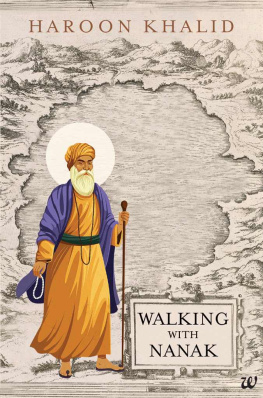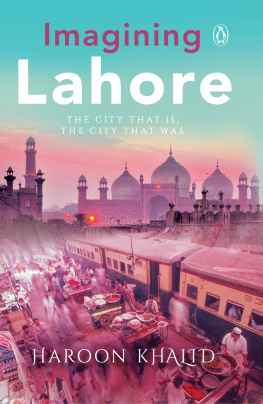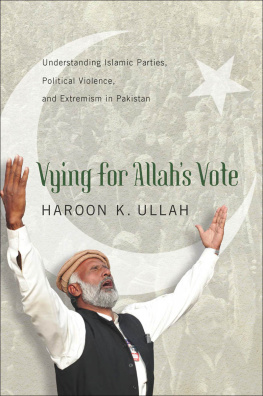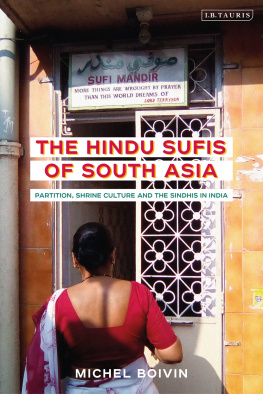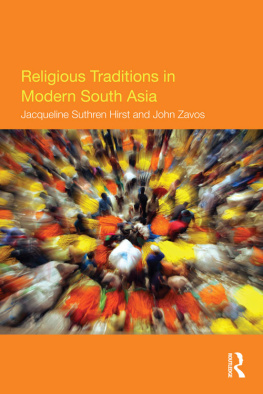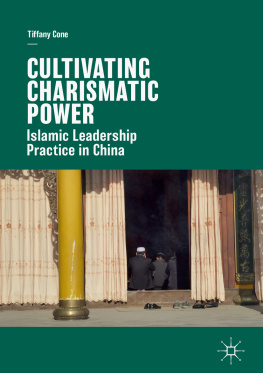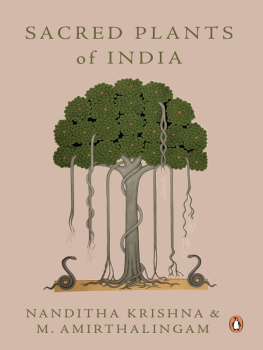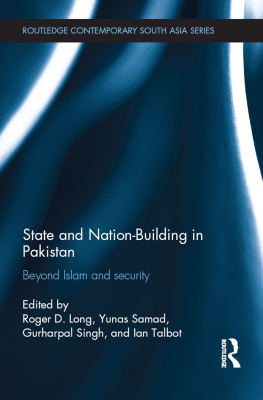
Haroon Khalid has an academic background in Anthropology from the Lahore University of Management and Sciences (LUMS). He has been a travel writer and freelance journalist since 2008, travelling extensively around Pakistan, documenting its historical and cultural heritage. He has written for several newspapers and magazines, including The News, Express Tribune, The Friday Times, Scroll and Himal and is also the author of A White Trail: A Journey Into the Heart of Pakistans Religious Minorities. Born and raised in Lahore he now lives in Islamabad with his wife and works as an educationist. This is his second book.

Published by
Rupa Publications India Pvt. Ltd 2015
7/16, Ansari Road, Daryaganj
New Delhi 110002
Copyright Haroon Khalid 2015
All rights reserved.
No part of this publication may be reproduced, transmitted, or stored in a retrieval system, in any form or by any means, electronic, mechanical, photocopying, recording or otherwise, without the prior permission of the publisher.
The views and opinions expressed in this book are the authors own and the facts are as reported by him/her which have been verified to the extent possible, and the publishers are not in any way liable for the same.
eISBN: 978-81-291-3902-3
First impression 2015
10 9 8 7 6 5 4 3 2 1
The moral right of the author has been asserted.
This edition is for sale in Indian subcontinent only.
This book is sold subject to the condition that it shall not, by way of trade or otherwise, be lent, resold, hired out, or otherwise circulated, without the publishers prior consent, in any form of binding or cover other than that in which it is published.
There are a few people in everyones life who are truly inspirational. For me they are my teachers. They saw immense potential in me, when I couldnt. They taught me that there is more to life than becoming a tool in the machinery of capitalism. They have inspired me and allowed me to see the world in a unique way. I would therefore like to dedicate this book to all my teachers over the years who have taught me to read, write, learn and most importantly, unlearn. This list cannot include all my role models but I have still tried to name a few. They are:
Furrukh Khan
Marta Bolognani
Sadaf Ahmad
Noman-ul-Haq
Rasul Baksh Rais
Pervaiz Vandal
Hassan Karrar
Robeena Tahir
Faiqa Afzal
Samina Rahman
Ahmed Ali
Sir Shaheen
Humair Hashmi
Contents

Introduction
THIS BOOK IS a product of several journeys, spread over a few years. Some of them were undertaken to write articles, some for research projects, a few as social visits while others for recreation. It is for this reason that my travels in the book are not narrated in a chronological order. I have combined them, scattered over the years, to suit a particular theme. When I compiled these stories I never knew that one day they will all come together in a book. Initially, I did not find any geographical or traditional connection between the different religious practices, but for one, they all represented an alternative version of practised Islam. However, as I came across more such stories I began to notice a common thread that united all of these practices. This was their connection to antiquity. Even though Islamic in its garb, their origins predate the birth of Islamsome of these links go back to the ancient Indus Valley civilization. In most of these cases, the religious tradition found its roots in the different spiritual traditions that developed around the cult of Lord Shiva. Having been raised in Pakistan, a country that was created out of its opposition to India and Hinduism, this was a fascinating discovery. The religious practices at the shrines were no longer isolated religious practices, but part of a tradition, representing a continuity that the rupture of Partition could not split. They defied the dogma of the exclusivity of the two religions, Islam and Hinduism. They denote that there was much borrowing and lending between different religious traditions and if one is willing to dig beneath the surface these connections can still be found.
I have tried to understand these different religious traditions in the backdrop of the rising tide of religious puritanism and extremism in Pakistan; the creation of Pakistan, the two-nation theory and its economic development. All these factors affect how these shrines are perceived and survive.
Unfortunately due to my limited resources I could not travel as much as I wanted, so there are several areas and shrines that are unexplored and could not be included in this book. Since this was mostly a self-funded project I could only limit my research around my hometown of Lahore. Therefore only parts of central Punjab are included and southern Punjab and Sindh are excluded, where there are many such shrines. These shrines also represent similar characteristics as discussed in this book

Muslim Rage: Innocence of Muslims
IN PAKISTAN, YOU have the most peculiar national holidays: the death anniversary of a former prime minister, the death anniversary of the mother-in-law of the incumbent president, the birth anniversary of the national poet who died eight years before the creation of this nation, Dengue Awareness Day, etc. And now you have a national holiday to protest against the blasphemous movie made by the West. The movie in question was Innocence of Muslims written and produced by Nakoula Basseley Nakoula and directed by Alan Roberts.
Like any other day, I woke up early in the morning on this national holiday of protest, and went for a jog. There was nothing different about the day. The jogging track, as usual, was dominated by post-sixties health freaks reluctantly dragging their feet, stopping frequently to emphasize a point they had been discussing with their partners. Like many other pleasant national traits, discreetness is not appreciated. The louder one speaks, the greater the claim one has over the truth.
Every morning, I have noticed, the discussion revolves around religion and politics. Equipped with political views from the late night talk shows that are aired on the dozens of national news channels, the men usually talk about the corruption of politicians. The women prefer to discuss spiritual matters. One frequently hears stories of different prophets mentioned in the Quran, and those of the companions of the Prophet of Islam. Some of the men and women walking alone, carry with them rosary beads, reciting verses from the Quran, while others grip their mobile phones, loudly playing an Arabic recitation of the Holy Book, along with its Urdu translation, a public display of their religiosity. This is a quintessential middle-class park, located in a middle-class locality, in the heart of Lahore. All the walkers come from the surrounding houses, newly built by their children who are working as managers or administrators in big factories and offices.
Today, the discussion revolved around the evil designs of the West to humiliate the Muslim world. As I squeezed past a couple of elderly women, I heard one of them say, I dont understand why the Christians have to do this. Have we ever humiliated their Prophet? The other one responded with an affirmative sound. I wondered if they realized that the Christian Prophet, Jesus Christ, is also regarded as a prophet in the Islamic tradition. Disgracing him would also mean committing blasphemy against Islam. Everybody on the track and the ground was inflamed by this movie that they had never seen. Condemning it was their way of taking part in this government-sanctioned protest. Most of them were too old to take to the streets anyway.
Next page

